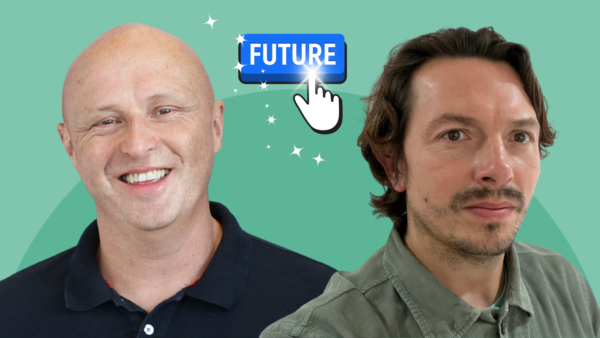A word on right now – the great resignation and a seller’s jobs market
As I write, we’re at the start of January 2022. The start of a third year of pandemic market conditions, but with a distinct difference to the start of 2021, when people in the UK were happy to be holding on to their jobs, or they were on furlough, or they were focusing on non-work or and/or health issues and just keeping going. At the start of 2022, for many people, there may be some different feelings… sure, still there’s frustration about pandemic restrictions and there’s still a lot of uncertainty, but in some sectors, there has been an upsurge in hiring over the past few months as the economy starts to recover and new roles become available.
This means that there is much more job market mobility and that there have been many more jobs available than has been the case for years. And that has created the conditions for what some are calling ‘The Great Resignation’, where swathes of people, unhappy with their employer or in their role, having had time to reflect on what they really want from a job or career during the pandemic, have made the decision to head out into the market and see what else is out there. And in some areas, there are a lot of job opportunities presenting themselves.
Who knows how long these conditions will last and whether the great resignation will continue for long? But what we do know is that markets shift and change and even if there’s a move back to people staying put sometime soon, for sure there will be a time for more job and career move opportunities in the future when the job market gets more fluid again.
So this blog is all about getting the career you want – that is, being prepared to make your move when the market conditions are right, or, quite frankly, when your conditions are right… that is, when you’ve decided that a career or role change is right for you. To help you navigate these decisions, I have some reflections about what not to do if you want to get the career you want, need and deserve. I then want to move on to describing the Japanese concept of ikigai to help you find your career sweet spot, and to finish, a reminder to bring your strengths into action to help you find the confidence to finally make your move.
What not to do #1: wait for someone else to manage your career for you
Cardinal sin no. 1 in getting the career you want is to let someone else manage your career for you. This is a dangerous tactic and can leave you in a risky position when your context shifts. What I mean by letting someone else manage your career is to put it in the hands of your organisation’s HR or L&D team, your boss, your mentor, or some other sponsor you have who always seems to look out for you. Now that’s not to say that these people aren’t important….quite the opposite, these people are super important in helping you to access the career opportunities you’re seeking, it’s just that waiting for someone else to throw a new opportunity into your lap is a strategy from a bygone era.
The expectation these days is that people need to look after their own careers and recruit others in support of their plan. I’ve spent too long on high potential leadership programmes where despite programme sponsors making it clear that participation in the programme isn’t going to equate to a job move or promotion, participants still expect there to be a pot of career gold waiting for them at the end just because they turned up. Doesn’t work like that. You have to be proactive, connected, vigilant and brave to get the career you want in 2022. So best to start today.
What not to do #2: think that careers are supposed to be hard, so pick the hard route
Second error that again I’ve heard voiced too many times is where people have this mental model that careers are tough, work is hard and therefore their expectation is that there’s no gain if there’s no pain. There is a case to say that you’ll need to push outside your comfort zone in several ways if you’re going to get the career of your dreams, but I challenge you that you need to pick the tough option just because your parents (or someone else) told you that work shouldn’t be fun. Maybe it shouldn’t be easy, but work doesn’t have to feel like hard work if you’re playing to the skills and strengths you’ve developed and if you’re creating value for your employer by doing the things that you do best. So don’t just look for the toughest career options, look for moves that will allow you…that will encourage you…to play to your strengths, to be your natural, authentic self, and to put your efforts into the worthwhile pursuit of delivering your job role to the best of your ability while feeling aligned with your team and organisation’s mission and values and having some fun at the same time.
What not to do #3: stick at something you don’t enjoy because your CV says so
My third what not to do, and again I see and hear it so often still…if you’re not happy somewhere, it isn’t ok to stick it out if the main or the only reason is to make sure your CV looks ok (on the assumption of ‘who would want to employ someone who doesn’t stay in a role for 2 years or more?’). I mean, just no, that’s old world thinking and there’s not many employers these days who take that draconian a view of someone’s CV chronology if they’ve got a clear story to tell about why they’ve made the decisions they’ve made. It’s ok to leave if you don’t feel your values are aligned with those of the organisation you work for. It’s ok to leave if your employer can’t give you the role opportunities they promised. It’s ok to leave if you find yourself in a toxic work environment. Quite frankly, in my view anyway, it’s ok to leave because on reflection you made the wrong decision about taking a role. You’re human, right? So get your CV story straight and head out. Far better that than to keep your head down and stay unhappy.
Find your ikigai (or pieces of it) and move things in that direction
So now let’s move on to how to best make a decision on where you want to take your career. How are you going to get the career you want, need and deserve? I podcast on ikigai a way back at Season 6, episode 6. The title is actually ‘Want to live longer? You need ikigai’ – yes really, ikigai is THAT important! Anyway, for the science and research data behind the idea and for a more comprehensive treatment of how to use it practically, plus a handy diagram, please find the podcast on the Strengthscope website by searching for ‘ikigai’. For now, I’d like to give you a summary to get you started. Below, I’ve included an updated diagram.
As regards your career, the ikigai idea – defined (according to the OED) as: “a motivating force; something or someone that gives a person a sense of purpose or a reason for living” – is to help you find the most fulfilling career path that you can. Having some, even if not all, of the ikigai components (coming shortly) in place will bring you more joy, more fulfilment and more learning than just following the traditional path or falling into the career potholes I’ve described so far.
Ikigai, so it’s said, can be found at the intersect of 1. what you love, 2. what the world needs, 3. what you’re good at and 4. what you can get paid for. Just stop a moment and let that slap you in the face a bit. That is so transparently simple as an idea and yet so completely profound that it has the potential to transform your life. For many people, ikigai represents the career wake-up call that they needed.
So ask yourself each of those questions and how much of each you get from your current role direction and your current career path. Are you doing what you love? Are you doing something that the world needs and values? Are you spending most of each day doing what you’re good at? And are you getting paid equitably in your view for what it is that you’re doing?
Ikigai, therefore combines passion, mission, vocation and profession in a way that works for you and that is one of the best definitions of a fulfilling career that I’ve come across. So I encourage you to spend a bit (or a lot) of time sitting with those questions and considering where they might take you career-wise if the answer to each was ‘hell yes’. And once you’ve got closer to finding your ikigai, it can help you move your career in a fulfilling direction for you.
Get your strengths working for you to get the career you want
So, once you’re clearer on the career you want, how are you going to take steps to move yourself in that direction? There is more to it than just strengths, but what we’re often being told at Strengthscope is how taking your strengths into job interviews is like turning up with superpowers. That’s because when you share your strengths and take them with you, you’re showing a future employer:
- You at your best – your strengths describe how you can contribute value in your unique style
- That you’ve thought about how you can use your gifts and talents to map onto what your target role and employer needs
- That you’ve got a handle on what makes you fly career-wise, what you enjoy about work and how your strengths play into that.
All of that, plus knowing your strengths just makes you feel more confident that you can do the job and that you cancreate value. Strengths in overdrive are also handy in interviews because if you know your overdrive risks in pressure situations like interviews, you can make a plan to not let them get the better of you in the interview room. And that builds confidence that you can avert disaster.
In conclusion – ikigai x strengths = your killer career
So in conclusion, to get your killer career, please try not to fall into the career traps that I’ve described – letting someone else manage your career for you rather than you doing it yourself, picking the toughest career path because someone told you that work should be hard, or sticking at something that’s making you unhappy for any longer than is absolutely necessary. And spend some time reflecting on your ikigai then bringing your strengths into play to redirect your career towards one that really works for you. Till next time, stay strong.












